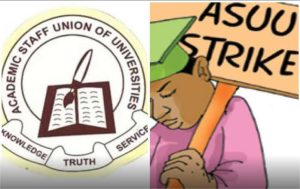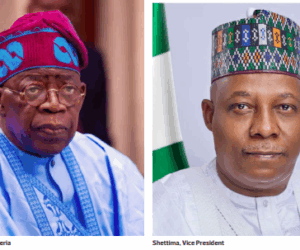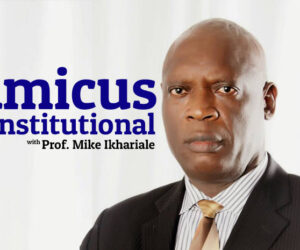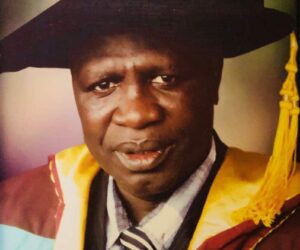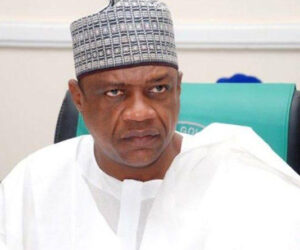1
UMEZURIKE EMEKA TAYE
Autonomy is not merely about freedom from government interference; it is about granting universities the authority to make academic, financial, and administrative decisions that reflect their unique missions. For instance, universities should have the power to design market-relevant programs, manage their budgets, recruit according to need without or with very reduced political interference and set competitive conditions of service within national guidelines. When institutions have the ability to innovate, they can more effectively collaborate with industries, attract research funding, and respond to changing societal needs.
However, autonomy must go hand-in-hand with accountability. There must be proper oversight mechanisms, as financial or academic independence without control or regulation could lead to inefficiency and corruption. The solution lies in a shared governance model where university councils, senates, and external stakeholders play clearly defined roles in ensuring transparency while preserving institutional freedom. The introduction of performance-based funding, where universities are rewarded for measurable outcomes such as research output, student success, and community engagement, can also strengthen both autonomy and accountability. There also must be periodic auditing of all university accounts by independent bodies set up by the government and reports be reviewed. In the event of misappropriation of funds, appropriate sanction should be meted out and culprits should actually see and be kept within the four walls of a prison for such acts to serve as a deterrent.
Poor governance has long undermined the effectiveness of Nigerian public universities. Political interference in the appointment of vice-chancellors, opaque procurement and recruitment processes, and weak internal management structures have eroded institutional integrity. In some universities, decision-making is mired in internal politics, nepotism and patronage rather than merit or data-driven planning. The result is a leadership culture that prioritizes short-term survival and their ability to continue to stay in office over strategic development.
Effective governance in higher education demands visionary leadership, data-informed planning, and a strong culture of integrity. The Federal Government and university governing councils must establish transparent and merit-based processes for leadership recruitment. Similarly, internal management structures should prioritize evidence-based decision-making, fiscal responsibility, and participatory administration.
The creation of independent regulatory bodies separate from direct government ministries could enhance oversight without micromanagement. For example, the National Universities Commission (NUC) should evolve from being a compliance monitor to a true quality-assurance and capacity-building agency, fostering innovation and supporting institutional growth across the country. NUC should function more as a partner for capacity building and resource allocation and sharing (especially academic and human capital resource) rather than just for accreditation and setting up of universities.
To end the recurring cycle of ASUU strikes and restore stability to Nigeria’s university system, the country must adopt a comprehensive and sustainable reform agenda built on three fundamental pillars of consistent funding, genuine institutional autonomy, and transparent governance. In the short term, ASUU must also adopt a more strategic and proactive approach in its engagement with the government. ASUU must find way to sponsor bills through the senate for legally binding framework, backed by an Act of the National Assembly and duly assented to by the President that enforces the implementation of all agreements such as earned allowances and other negotiated benefits between ASUU and the government. This would prevent the repeated pattern of new administrations disowning previously signed agreements.
Additionally, immediate infrastructural renewal is essential, supported by targeted intervention funds to upgrade learning and research facilities. Research and postgraduate training should receive increased funding and incentives from TETFund, as well as through private-sector and international partnerships, to reduce the ongoing brain drain and foster innovation within the country’s universities.
In the long term, Nigeria’s higher education system needs a restructured financing model that blends sustained public funding such as through NELFUND with private investment and international collaborations. Universities should be granted greater managerial autonomy to innovate, compete, and tailor their operations to global best practices. The National Universities Commission (NUC) must also be strengthened to function not just as a regulator, but as a supportive partner that enhances institutional capacity and promotes quality assurance. Transparency and accountability should be institutionalized through annual public reporting of university finances, performance indicators, and outcomes.
The recurring ASUU strikes are only the visible surface of a deeper systemic dysfunction within Nigeria’s public universities. At the core lie intertwined issues of inadequate funding, constrained autonomy, and poor governance. Addressing these structural failures requires moving beyond temporary palliatives and adopting a comprehensive, long-term strategy that redefines how Nigerian universities are funded, managed, and evaluated. If Nigeria truly aspires to transform its economy and compete globally, it must begin by transforming its universities. A stable, well-funded, autonomous, and responsibly governed higher education system is not a luxury; it is the foundation of national progress. The future of Nigeria’s development depends on how seriously it takes the lessons beyond the ASUU strike.
*Concluded
*Emeka Taye (PhD) writes from the Department of Biological Sciences, Lead City University, Ibadan

